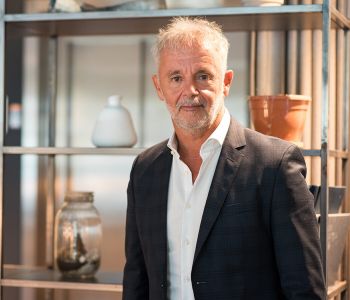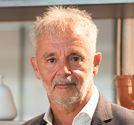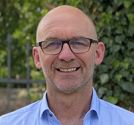Master in Clinical Psychoneuroimmunology
Designed for health professionals, this master’s degree opens up a true way to help people recover their health through real effective reasoning using unique tools developed in the science of clinical psychoneuroimmunology.

Consist of
18 modules
English
Dutch
German
Spanish
Italian
Brazilian
This master of continuous education is the way to improve your skills and knowledge at the level of neurology, psychology, endocrinology, sociology, immunology and all the connections between these topics. This is what makes clinical psychoneuroimmunology a real complete modern medicine. Preventive, protective and secondary preventive interventions are parts of clinical PNI. These are based on etiological and pathophysiological reasoning with the use of meta-models that have been developed during 35 years of thorough and scientific research. People are humans, and therefore global interventions regulating the BIG 23 (from breathing to sleeping) should always be the basis of any intervention in people suffering from any chronic disease. However, people are also individuals, and therefore you also learn how to develop personalised medicine.
We propose you make a life-changing decision; join us on this journey of change and become part of our already huge clinical psychoneuroimmunological community and a Master in clinical PNI.
You will receive the most up-to-date training in the field of clinical psychoneuroimmunology
You will be empowered to offer truly comprehensive care to your patients and clients, addressing not just the symptoms, but also the underlying causes of pathologies
You will become an fully accredited clinical psychoneuroimmunology therapist, with an internationally recognized master’s degree

Leo Pruimboom – Director of the Pruimboom Institute
The course is divided into six modules per year, each covering a different topic in cPNI.
Pruimboom Institute is privileged to have a team composed of members representing the foremost experts in the field of cPNI clinical psychoneuroimmunology.

|
Dr. Leo Pruimboom
|
Dr. Leo Pruimboom is the director of the Pruimboom Institute and Foundation.
He is the founder of KPNI, clinical psychoneuroimmunology, which he has been developing for over 3 decades. He is an internationally recognised researcher and lecturer and has spoken at over 200 congresses worldwide. Furthermore, he is also responsible for developing the Intermittent Living concept, written 6 books and chapters, and published over 35 research papers.
|

|
Itziar Hernandez
|
Itziar Hernandez holds a master’s degree in Clinical Psychoneuroimmunology and in currently doing a master in Personalized Nutrition. She is a lecturer and scientific director at PNI Europe where she takes part in the development of academic content. Previously, she was the CEO of her own practice and has worked as a clinical therapist for over 15 years.
|

|
Professor Charles Raison, M.D.
|
Prof. Raison is an internationally recognized psychiatrist. He has several academic positions at reputable universities and over 100 (co)-publications to his name. He also serves as the mental health expert for CNN.com.
|

|
Tom Fox
|
Tom Fox is movement scientist, naturopath and therapist in clinical psychoneuroimmunology. He is CEO of KPNI Germany, and also leads his own practice. He has (co)authored scientific publications and lectured on a range of topics related to KPNI.
|

|
Professor Dr. Frits Muskiet
|
Prof. dr. Frits Muskiet is professor emeritus of pathophysiology and clinical chemical analysis. He has been (co)advisor of 32 PhD students and has (co)authored more than 280 PubMed registered publications.
|
Only individuals who have a bachelor’s degree or completed college education in a study related to healthcare are eligible for the master’s degree.
Three academic years, 18 modules. Each of the academic courses consists of 6 three-day and some of four days seminars and Q & A sessions.Throughout the training, there will be 3 days of practical case studies.
90 ECTS
University FISIDEC, a center affiliated with the University of Córdoba (UCO), our 90 ECTS Master’s degree.
Approximately 45 students per class, but the amount may vary depending on the campus
Online, live virtual and in-person.
All teaching materials are offered in digital format. In each module, students will receive:
- A digital reference text supporting the topics covered in that module
- Digital didactic material
- Scientific articles
During the course you will have access to the private section of your campus website, where you can download all presentations, articles and supporting chapters. There is also a student auditorium (digital library).
It is mandatory to have attended 80% of the course to be able to access the exam.
At the end of each academic year, students will carry out a multiple-choice theoretical exam. The PNI 1 exam will take place in the first PNI 2 seminar and the PNI 2 exam will take place in the first PNI 3 seminar.
At the end of the third year, students must take both a final theory test and a practical exam through a consultation with a real patient.
Failure to pass the first and second exams does not disqualify you from enrolling in and attending the next course. In case of failing any exam, you will have two extra attempts. To be able to receive the Master’s degree, it is essential that you have passed all the exams.
Once you have passed the exams, the Master’s degree will be issued through Fisidec, centre affiliated with the University of Córdoba, after payment of the corresponding fees.
Pruimboom Institute and its scientific committee are responsible for the development of the master’s programme; the members of the committee are continuously working on the program to include the latest discoveries and every three months there is a committee meeting to update the course content. The committee is made up of Prof. Dr. Marion Raab, Prof. Dr. Frits Muskiet, Tom Fox, Daniel de la Serna, Itziar Hernández, and Dr. Leo Pruimboom.
The master’s is taught by Pruimboom institute teachers and/or by teachers from Pruimboom Institute partners at the different campus. Fisidec, centre affiliated with the University of Córdoba is in charge of granting the diplomas that certify the title of Master in Clinical Psychoneuroimmunology.
We kindly refer you to the campus of your interest for prices and registration options.
